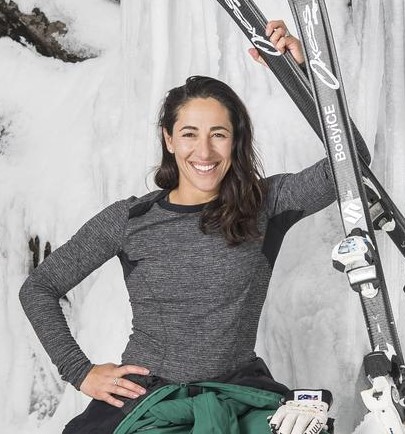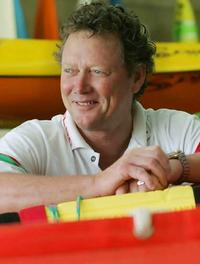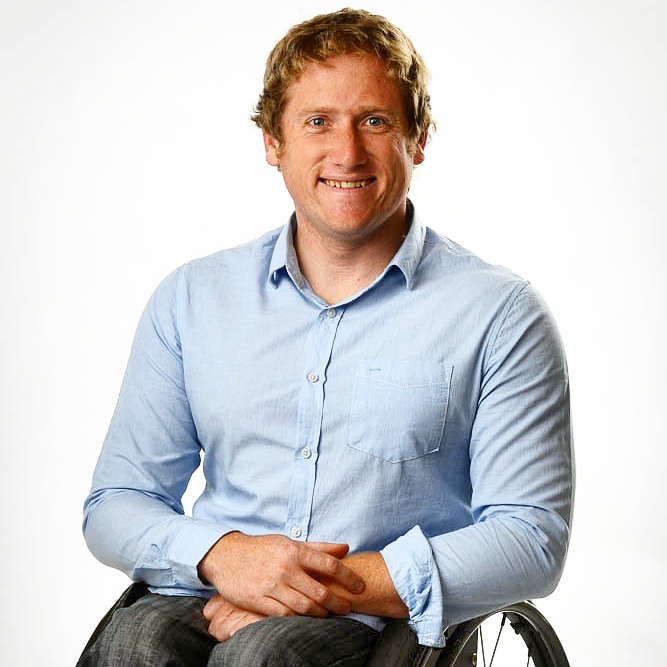Lydia Lassila

Olympic Gold Medallist Aerial Skier, Entrepreneur
Lydia Lassila is a champion aerial skier, an Olympic Gold Medallist, the holder of three world records and a veteran of four Winter Olympics. She reached the top echelon of aerial skiing faster than any woman in the history of the sport and, after spending 14 years on the International Word Cup Circuit, became the most successful Australian aerial skier of our generation.
Lydia is also a successful businesswoman and entrepreneur. In 2006, she launched her own business, Body Ice, based on a no-fuss ice and compression system that moulds around injured joints and body parts. Lydia created the product range as a result of her own experiences with injuries as an athlete.
After returning from the Sochi Olympics in Russia in 2014, where she won a Bronze medal, Lydia decided to take a break from sport and since then has begun sharing her story, strategies and the many life experiences she’s had as an athlete, mother and entrepreneur.
As a speaker, Lydia is down to earth, inspiring, engaging and able to connect with audiences of all ages. She knows what it takes to make the mind excel and is skilled at understanding human behaviours. Audiences will come away with clear strategies on how to maximise their potential.
More about Lydia Lassila:
In her first season on the World Cup circuit in back in 2001/02, Lydia Lassila – then Ierodiaconou -recorded three top ten placings, the best a fifth at Mt Buller in her first competition, and she also qualified for the Salt Lake 2002 Olympics.
In the qualification round of the 2002 Games, she landed a double full tuck jump that she had never performed in competition, and then in the final, successfully performed a triple twisting double somersault that she had practiced on snow for the first time just two days earlier. She finished eighth in the event, in her eighth world-class competition.
In a remarkable 2002/2003 season, she finished second on the World Cup standings behind team-mate Alisa Camplin, in just her second year of competition.
In the 2003/04 season she was again world number 2 behind Camplin, on the back of two victories and five other podium places in an impressive display of consistent jumping.
In 2004/05, she won the opening three events of the season, but then opted to begin jumping triples in a strategy aimed at Torino gold. Torino, of course, was not a happy experience for Lydia. Few Australian sports fans who were watching the 2006 Games will forget her chilling screams as she blew out her knee in the aerial skiing elimination round in Sauze d’Oulx. The Torino Games took place just eight months after allograft surgery to repair the anterior cruciate ligament of her left knee, torn in a water jump accident in Lake Placid, New York, at the beginning of June 2005.
Lydia has been honoured throughout her career and just some of her accolades include winner of the Don award, Athlete of the Year by the Australian Institute of Sport, Ski and Snowboard Australia Athlete of the Year and the Order of Australia Medal.
Lydia is a member of the Athlete’s Commission on the Australian Olympic Committee (AOC) and the International Ski Federation (FIS). Her passion for sport and enthusiasm to make positive change drive her to be involved at a level where she can contribute and give back to a sport that has given her so much.
Throughout her career Lydia has encountered many setbacks, mostly due to injury, but has persevered to ultimately achieve her goals. During her presentations, she highlights the importance of having a clear vision and demonstrates how you can bring that vision into reality. Audiences will feel empowered to take charge of their lives, identify their vision and create a plan to live their dreams.
Lydia Lassila talks about:
- Planning to win and the courage to see it through
- Identifying your purpose
- Mind skills for self improvement
- Goal mapping and meeting deadlines
- Overcoming fear and adversity
- Maximising your potential and striving for excellence
- Accepting accountability and defining your limits
- Working as an individual and in a team
- Work/life balance
- Decision making
- Managing risk



